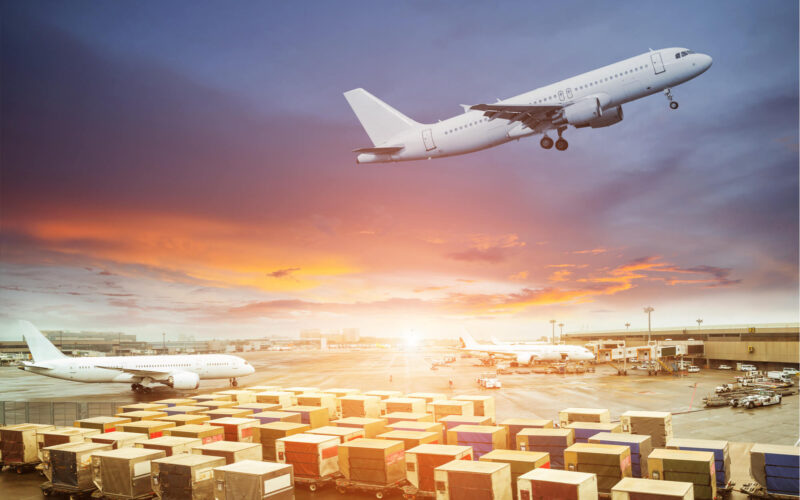“I was at Lufthansa Cargo. I wish I had stayed there.” These sentiments from Lufthansa Group chief executive Carsten Spohr are most likely well understood by many other airline executives this year.
Airlines globally have seen their financial results take a battering from the COVID-19 pandemic. But carriers with air freight operations have been more shielded than others.
By the end of 2021, the International Air Transport Association (IATA) expects annual cargo revenues to reach $152 billion, a historic high, and up from $128 billion in 2020 and $101 billion in 2019.
Its importance to the industry is greater than ever this year in terms of revenues. The IATA states: “In 2021 cargo will account for a third of industry revenues. This is significantly above cargo’s historic contribution, which ranged around 10-15% of total revenues.”
Cargo demand has boomed during the pandemic. Not only have medical goods and vaccines needed to be transported, but with retail outlets closed, many people have turned to online shopping.
Yet with many passenger planes grounded, capacity has been tight. Basic economics states that with supply tight and demand high, it’s a great combination for those with freighter operations.
Lufthansa Cargo had already seen its profit shoot up to €772 million ($915 million) in 2020 from €1 million ($1.2 million) in 2019 as the pandemic took hold, but this year is set to be even better.
The business is now aiming for a record year in terms of profit, Spohr told journalists at an event in Frankfurt on August 30, 2021.
When Spohr, formerly chief executive of Lufthansa Cargo, took over as chief executive of Lufthansa Group in May 2014, the entire group had reported a 2013 operating profit of €626 million ($742 million). Now the cargo arm alone is aiming for €1 billion ($1.2 billion) of profit this year. “I would have taken that for the group as a whole when I started,” Spohr joked.
RECORD REVENUES
European rivals have also seen robust cargo results this year. Air France-KLM said its cargo revenues rose 74% to €1.7 billion ($2 billion) in the first half of 2021. Unit revenues per available ton kilometer stood at 29 euro cents, compared to around 13 euro cents in 2019.
“Compared to 2019, a still limited cargo capacity is available while the demand remains high resulting in high revenue ton kilometers and revenues,” the Franco-Dutch carrier commented.
IAG Cargo also reported what it termed a record quarter, with revenue up 25% to €769 million ($911 million) in the six months to June 30, 2021. Meanwhile, Parent IAG saw total revenue slump 58% over the same period.
The same story is occurring in Asia.
Singapore Airlines Group passenger planes were only 15% full in the three months to June 30, 2021. However, its cargo load factor reached 89% and revenue from cargo flown increased 32%.
It expects the strong demand to continue, although it has warned of volatility as pandemic restrictions shift.
“Overall industry airfreight capacity continues to be tight as passenger flights, and hence bellyhold cargo capacity, have yet to recover fully,” the airline said in the earnings report from July 29, 2021.
Financial results at Korean Airlines are getting a boost from cargo, too.
It reported a 31% increase in profit for the second quarter, driven primarily by its cargo operations. The carrier’s freight division achieved revenue of KRW1.51 trillion ($1.3 billion), which Korean said was the highest in its history. That came hot on the heels of the last record, achieved in the fourth quarter of 2020.
“Korean Air will continue to maximize its profit by utilizing its freighters and cargo-only passenger aircraft throughout its strong global network,” the airline commented on August 13, 2021.
DELIVERING THE GOODS
In New Zealand, where Prime Minister Jacinda Ardern swiftly shut the borders to try and prevent COVID from reaching the shores of the island nation, cargo has been a bright spot for Air New Zealand and crucial to helping the country’s economy. Cargo revenues in the 12 months to June 30, 2021 were up 71%.
“Cargo flights supported by the New Zealand Government’s airfreight support schemes have seen our team deliver chilled meats, seafood, stone fruits, berries and dairy products all across the globe,” CEO Greg Foran commented on August 26, 2021. “These flights have also supported goods coming into the country, allowing New Zealanders to continue accessing international products they may need.”
His remarks highlight how cargo flights have proven a lifeline for island countries during the pandemic.
Coping with the fast-changing travel restrictions has also made Air New Zealand more flexible, Foran said.
“This agility has enabled us to rapidly initiate cargo flights to Guangzhou, a destination we have never flown to before,” Foran noted.
Turning to the Middle East, Etihad CEO Tony Douglas told an online CAPA event that it was only thanks to cargo that it had been able to keep some flights going.
“If it hadn’t been for the significant increase in cargo, there’s no way we would have been able to maintain the same network and frequencies we have been doing,” Douglas said.
Still, these airlines must remember that the air freight market is typically more volatile than passenger demand. Relying on air freight to smooth out results would not be a good strategy.
As Spohr said at the Frankfurt event: “I don’t need to tell you that cargo can’t compensate for all the other problems alone. That’s why restructuring remains our focus.”

